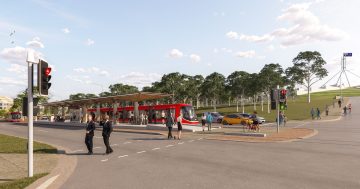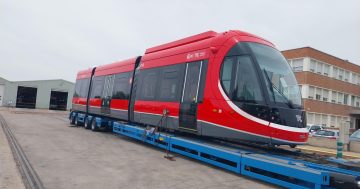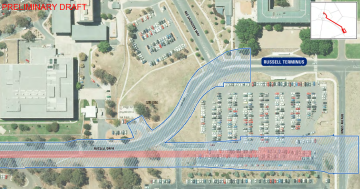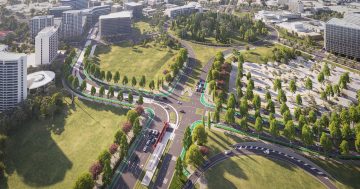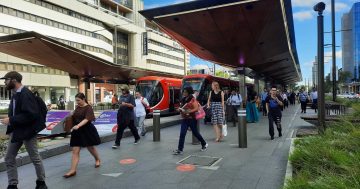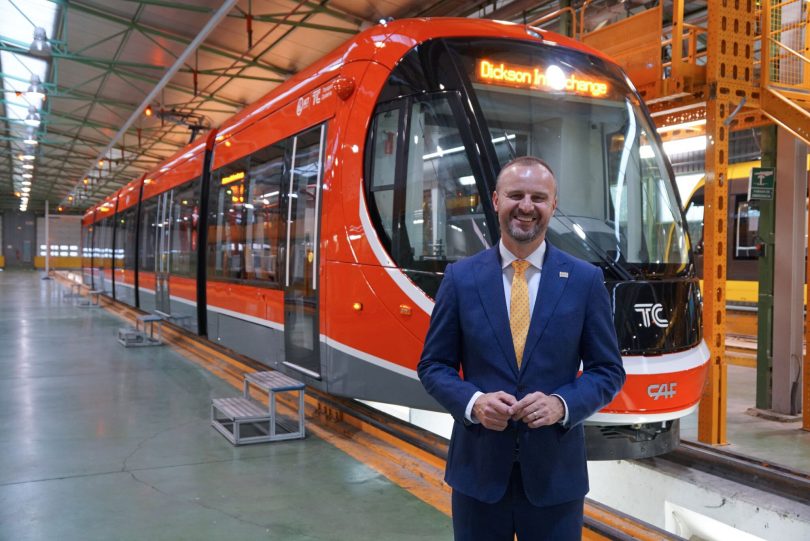
Chief Minister Andrew Barr and the first of 14 light rail vehicles that will be used on Stage 1 of the Canberra light rail network.
Chief Minister Andrew Barr has inspected the first light rail vehicle that will carry passengers on Stage 1 of the Canberra light rail network.
This vehicle will be shipped to Canberra in the next few weeks, and is the actual vehicle, in all its livery, that will be running down the Stage 1 corridor.
Mr Barr last week visited key partners in the light rail consortium in Europe to discuss the progress of the project as well as opportunities on future stages.
In Germany, he met with the operator of the light rail Stage 1 network ‘Deutsche Bahn’, which is one of the largest transport companies in the world.
 “As the construction of the project continues, our discussion will focus on the operation of the city’s first light rail service and opportunities for integration of the services with Stage 2, connecting the city centre to Woden,” Mr Barr said.
“As the construction of the project continues, our discussion will focus on the operation of the city’s first light rail service and opportunities for integration of the services with Stage 2, connecting the city centre to Woden,” Mr Barr said.
He also visited the Spanish factory where Canberra’s light rail carriages are being made to inspect the first units as they roll off the production floor. The factory inspection is part of the Government’s contract with the Canberra Metro consortium.
“The construction and operation of Stage 1 of the citywide light rail network attracted some of the biggest multinational corporations in the world. With planning on Stage 2 underway, the Government is keen to discuss the development of the project with the industry,” Mr Barr said.
Mr Barr also met with Professor Ottmar Edenhofer, Director of the ‘Mercator Institute on Global Commons and Climate Change’, to discuss smart city strategies, and Mr Lluis Noguera, CEO, ‘Global Power Generation’, on their plans for expansion into the rapidly expanding Australian renewables market from their Canberra headquarters.
He was due to meet Acciona – major sustainable, infrastructure, renewable energy, water, and services business corporation – to discuss infrastructure investment opportunities in Canberra. The company has recently built the biggest photovoltaic plant (24 MWp) in Australia at Royalla as a contractor for FRV (a leading global utility-scale solar developer).
The estimated cost of the delegation for the Chief Minister’s office is $24,000.












